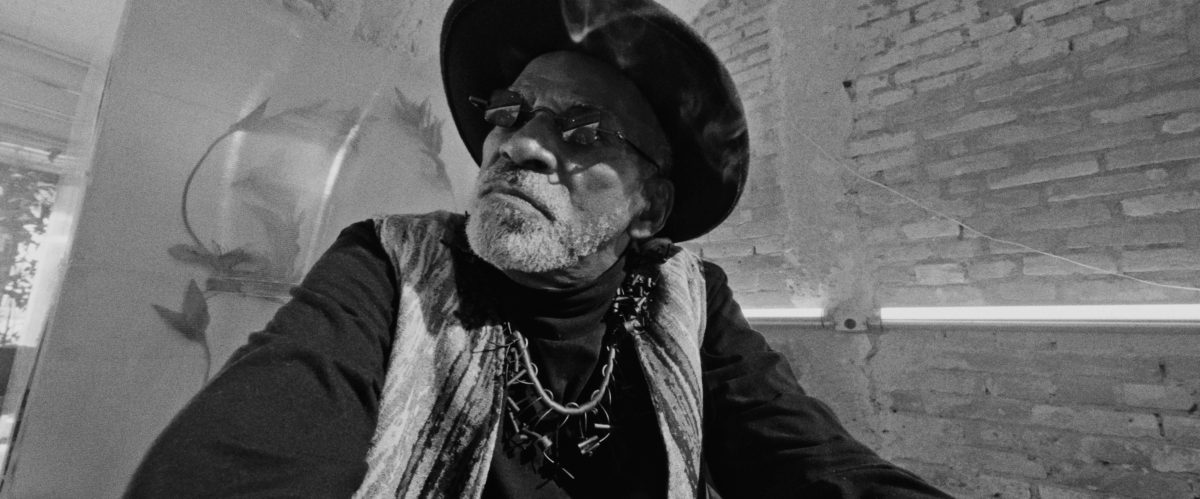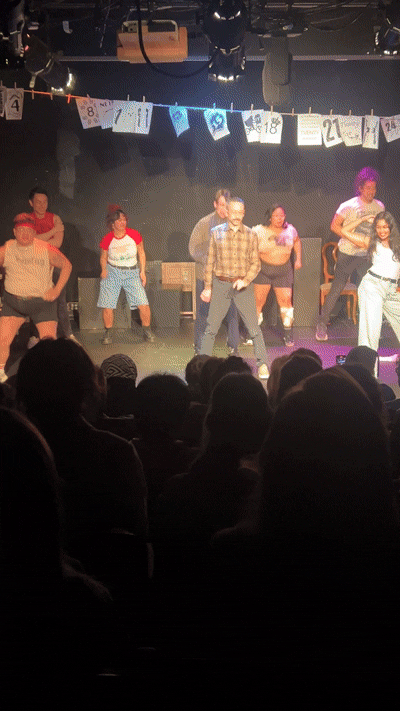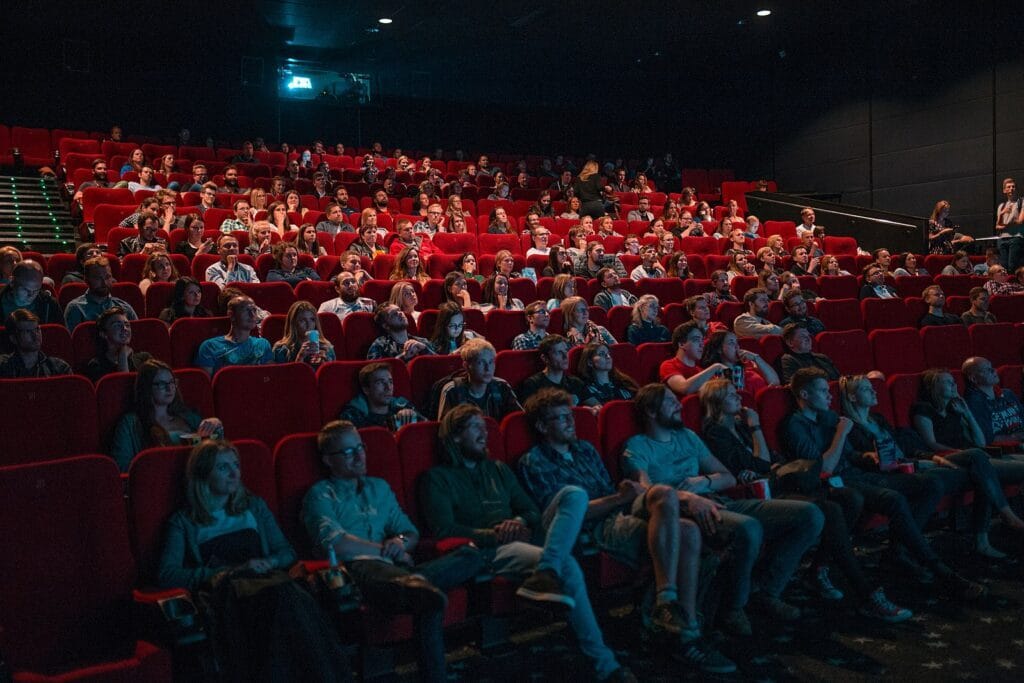
Photo by Liyannalee via Wikimedia Commons
There are fewer theatrical venues available. Returning to the in-theater experience still proves a hard lift for way too many viewers. And the 800-pound gorilla known in film festival circles as the San Francisco International Film Festival (hereafter “SFFILM”) has radically downsized in scale and scope this year.
Should this state of affairs throw film festival lovers into despair? Not really. Thanks to a nice bit of timing, the remaining weekends in April each have a local film festival running during those days. All the viewer needs to do is choose which one to attend.
27th San Francisco Silent Film Festival
Having the Castro Theatre closed for renovations (depending on how you define that word) might have meant the San Francisco Silent Film Festival (hereafter “SFSFF”) would become homeless. Traditional multiplexes lack the space needed to host the live musical accompaniment that makes watching silent films a joy nowadays. Fortunately, the 27th SFSFF will happen after all at the Palace of Fine Arts Theatre from April 10-14, 2024. Ironically, decades ago, this same venue housed several iterations of SFFILM.
Over these five days, viewers can sample one or more of the 22 live cinema programs offered this weekend. These films hail from such countries as Denmark, Sweden, and Ukraine as well as the expected United States. Among the directors whose work is represented here are such familiar world cinema names as Yasujiro Ozu, G.W. Pabst, and Victor Sjostrom. The Hollywood films may offer the main starpower with such actors as Clara Bow, Buster Keaton, Douglas Fairbanks, and Laurel and Hardy. But don’t forget Brigitte Helm plays the lead in the Pabst film.
Word to the wise: The Palace of Fine Arts Theatre has roughly two-thirds the seating capacity of the Castro Theatre. So if you want to catch one of the more popular entries at SFSFF, get your tickets early.
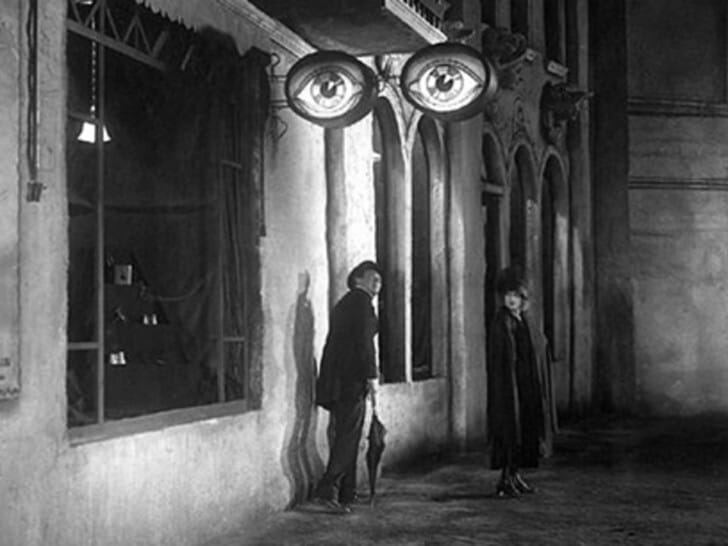
The Street
Here are some suggestions for SFSFF programs to try out:
“East Side, West Side”–Ever wonder why New York City was romanticized in the 1920s as the place where someone with lots of grit and a little luck could rise out of the slums? Allan Dwan answers that question with this love letter to the Big Apple. It’s a letter filled with street thugs, uptown swells, an Irish bargeman who wants a better life for himself, and stops at many of the city’s storied spots.
“Hell’s Heroes”–Director William Wyler, before he truly found fame, shot this version of the story of three bad men enduring the ravages of Hell to save an orphaned infant. Filmed under insane conditions in the Mojave Desert.
“The Kid Brother”–Legendary silent screen comedian Harold Lloyd stars as Harold Hickory in this action comedy Western directed by Ted Wilde. Harold’s big strapping father and brothers think of the considerably shorter and more timid Harold as such an embarrassment that the bespectacled brother gets saddled with all the women’s work on their farm. But the arrival of a somewhat shady traveling medicine show gives Harold the opportunity to demonstrate that you don’t always need muscles to prove your mettle. .
“Poil de Carotte”–Julien Duvivier (“Pepe Le Moko”) adapts Jules Renard’s autobiographical novel set in a provincial French town. The title, “Carrot Top” in English, describes its red-headed and freckled central character. He’s a boy whose mother doesn’t love him and whose father ignores him.
“The Street”–Karl Grune’s seminal drama would spark a entire film genre known in Germany as the Strassenfilm. A husband leading a dull ordinary existence succumbs to the temptations of the urban night, and heads out into a world of both neon-lit wonder and danger. His story winds up being connected to the story of a blind grandfather (played by “Nosferatu”’s Max Schreck) searching for his absent son.
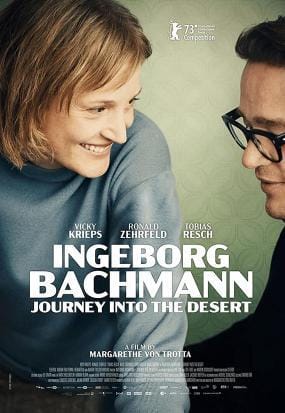
Ingeborg Bachmann – Journey Into The Desert
28th Berlin & Beyond Film Festival
The following weekend sees the arrival of the 28th edition of the Berlin and Beyond Film Festival (hereafter “B&B”). The Goethe Institute, which presents the festival, handpicks what it feels are the best contemporary films from Germany, Switzerland, and other German-speaking countries. This year’s festival runs from April 18-22 at two different venues in the Bay Area. From April 18-20, 2024, San Francisco’s Roxie Theater serves as the festival venue From April 21-22, 2024, the venue switches to the Rialto Cinemas Elmwood in Berkeley.
This year’s B&B features close to a dozen films dealing with stories ranging from an 11-year-old kid solving a rhino’s murder (Thabo And The Rhino Case) to a dramatization of the Milli Vanilli story (Girl You Know It’s True). Among the more interesting titles being shown this year are:
“Hao Are You”–Director Dieu Hao Do shows the personal consequences of the American War in Vietnam in bringing about the fragmentation of his family. 50 years after the filmmaker’s family escaped Vietnam, communication among the surviving members has broken down for reasons unknown. Is the cause of this communications breakdown communism, an inheritance dispute, or decades-old trauma?
“Ingeborg Bachmann – Journey Into The Desert”–Austrian poet Ingeborg Bachmann (Vicky Krieps) successfully broke into the male dominated world of post-WWII German-language literature. She may have a passionate but open relationship with the 15-years-older Swiss playwright Max Frisch. Yet Max envies Ingeborg’s fame while the poet can’t stand either her lover’s jealousy or the clatter of his typewriter. A trip to the Egyptian Sahara may help Bachmann find herself and reignite the spark behind her writing…or it may show her that her relationship with Frisch is doomed. Acclaimed New German Cinema director Margarethe von Trotta helms this biopic.
“The Teachers’ Lounge”–Missed prior screenings of this acclaimed Foreign Film nominee for an Academy Award? Then don’t miss this screening of Ilker Catak’s drama set in a German middle school. Young idealist Carla Nowak is the new teacher at a German middle school, and she has a nice rapport with her seventh-grade students. But a series of thefts at the school leads to tensions among outraged parents, opinionated colleagues, and angry students. Carla’s attempts at mediation only result in her being worn down by the unyielding nature of several sides.
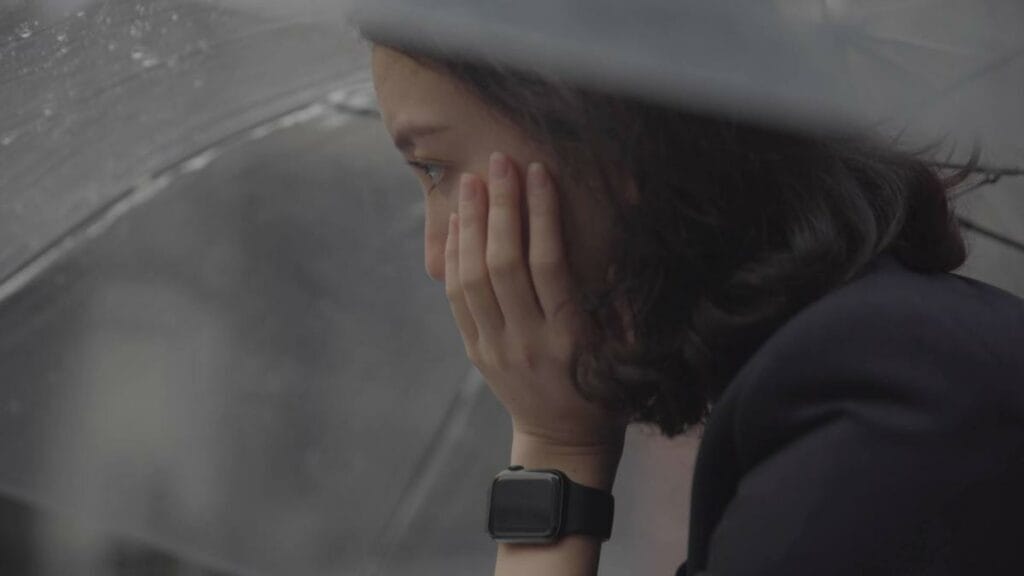
Black Box Diaries
SFFILM 67
This year’s edition of SFFILM will shock those expecting the traditional 10-day-long cinema bacchanalia taking place at half a dozen theaters. The 67th SFFILM runs only from April 24-28, 2024 at just three theaters: the Premier Theater at One Letterman, the Marina Theatre, and the Berkeley Art Museum/Pacific Film Archive. Incidentally, a selection of festival titles will be screened May 2-4, 2024 at the Roxie Theatre under the SFFILM Festival Encore Days banner.
This temporary bonsai edition of SFFILM is at least a step up from what happened to what would have been the 2020 festival. That event had to be cancelled outright thanks to the pandemic lockdowns and the other events of that figurative year from Hell. However, the aftereffects of that traumatic year still linger for SFFILM in the form of trouble in finding screening venues and the still slow return of in-person theatrical audiences.
Polite grumbling aside, there are still a few gems to be found among the more than 80 films from over 30 countries being screened at this year’s festival. Here are some suggestions:
Black Box Diaries—-If you thought #MeToo was a hard social lift in America, this documentary shows how seeking justice for women proves far harder in Japan. In 2015, director and central subject Shiori Ito was a Reuters intern. A dinner with veteran newsman Noriyuki Yamaguchi turns into a painful life-changing experience thanks to Yamaguchi’s drugging and raping Ito. Holding her assailant accountable seems highly unlikely. Japan’s sexual assault and consent laws are badly outdated. Yamaguchi’s professional stature is such that he’s Prime Minister Shinzo Abe’s personal biographer. Nonetheless, Ito will endure threats, a years-long struggle, and media calumny to obtain justice. Ito will appear in person at the SFFILM screenings.
The Cats Of Gokogu Shrine–Director Kazuhiro Soda’s new documentary takes viewers to his seaside hometown of Ushimado. Life is far from idyllic there. The place has been hit badly by the pandemic, modernization and shifting industrial investment, and the demographic reality of having a mostly aging population Yet there is the titular shrine, and the presence of a large population of feral cats living there. Evicting the felines isn’t an option on the table. Yet what can be done to keep these wild furballs alive?

The Cats Of Gokogu Shrine
Eureka—Director Lisandro Alonso’s new film consists of a trilogy of stories connected by the common setting of “indigenous peoples living in the Americas.” One tale reunites the director with his “Jauja” star Viggo Mortensen in the story of a gunslinger looking for his kidnapped daughter. The second tale goes to South Dakota’s Pine Ridge Reservation. Here, Native American cop Alaina searches for another missing young woman. The final tale takes the viewer to the Amazon, where a forest-dwelling tribe is riven by personal rivalries. Alonso tells these three stories in different cinematic styles and stories whose tone cumulatively changes slowly from realism to something dreamlike.
Janet Planet–Award-winning playwright Annie Baker’s debut film follows the summer of young Lacy’s shift away from the orbit of her single yet loving mother Janet (Julianne Nicholson). It’s a summer of small events such as races around the mall with a friend and a weird outdoor theatrical experience. Lacy may be entering middle school in the fall, but she’s smart enough to keep her eyes open as she observes and processes the behavior of the adults around her.
Luther: Never Too Much–Director Dawn Porter (“The Lady Bird Chronicles”) offers a portrait of singer Luther Vandross, the man nicknamed the “Velvet Voice.” This comprehensive look at Vandross’ career goes from his surprising beginnings (singing on “Sesame Street” at age 18) to doing ad jingles and singing with David Bowie to his performing such memorable hits as “Any Love,” “ A House Is Not A Home,” and of course “Never Too Much.” The film also touches on such topics as unwanted media scrutiny of his weight and reminiscences from such folks as Jamie Foxx and Mariah Carey.
Mel Novikoff Award: Gary Meyer, “Macario,” and “Sour Death Balls”–SFFILM’s Mel Novikoff Award honors individuals and institutions who’ve increased the public’s awareness of world cinema. This year’s honoree is legendary programmer Gary Meyer. His achievements include programming for Berkeley’s U.C. Theatre in its repertory cinema phase, co-founding what would become the Landmark Theatres group, and Resident Curator for the Telluride Film Festival. Golden Age Of Mexican Cinema director Roberto Galvaldon’s “Macario,” Mexico’s first foreign film Oscar nominee, adapts a B. Traven story about a continually poor and hungry woodcutter named Macario whose act of kindness results in his being gifted with the power to heal. But the Spanish Inquisition soon takes an unwanted interest in this former woodcutter. Jessica Yu’s “Sour Death Balls” records the hilarious results of kids and adults taking a sour candy taste challenge.

Soundtrack For A Coup d’Etat
Persistence Of Vision Award: Johan Grimonprez & “Soundtrack For A Coup d’Etat”–SFFILM’s Persistence of Vision Award honors filmmakers who’ve established an impressive body of work outside the realm of narrative filmmaking. This year’s honoree Johan Grimonprez may make documentaries, but they’re neither “just the facts, ma’am”-type works nor films taking a “news from nowhere” stance. Instead, his films use a mix of established fact and imagination to offer new perspectives and insights on our shared realities. Grimonprez’ newest film essay looks at how the introduction of such jazz ambassadors as Louis Armstrong, Abbey Lincoln, Dizzy Gillespie, and Max Roach became a weapon used by Western interests against the young Democratic Republic of the Congo. How did such acclaimed music become the soundtrack for plotting that would end with the assassination of Congo’s first Prime Minister Patrice Lumumba?
Porcelain War–This winner of the Sundance Documentary Grand Jury Prize tells the story of three Ukrainian friends putting aside their past lives after the Russian invasion of their country. Artist Slava and best friend Andrey join a special ops unit on the front lines while Slava’s wife Anya makes porcelain art amid constant bombardment. None of the subjects deny the violence of the war occurring in their country, but they also make time to appreciate spring blossoms and long walks through the countryside. Directors Slava Leontyev and Brendan Bellomo as well as subject Anya Stasenko will appear at the screening.
The Practice–Director Martin Rejtman’s new comedy focuses on the travails of Argentine yoga instructor Gustavo. He’s living in Chile after recently getting divorced from his wife, yet he still loves her. His answer to an injury requiring surgery is to do more exercise. His mother’s constantly nagging him to return home. And problems at his studio include a possible thief among his students and the attraction of a pretty pharmacist.
Seeking Mavis Beacon–Jazmin Renee Jones’ debut documentary follows a search for the fate of a woman of Haitian descent. The woman, publicly known as “Mavis Beacon,” was the face of the popular 1980s educational software “Mavis Beacon Teaches Typing.” Yet how did Mavis Beacon come to be? Was Beacon actually a fake name connected to the face of a real yet anonymous woman? If so, who was or is the woman whose image was appropriated for commercial use.and what finally happened to her? And what role does queerness play in the search? Director Jazmin Renee Jones will appear at the screening.
The post April 2024 Weekends Are For Film Festivals (Mostly) appeared first on Broke-Ass Stuart's Website.
